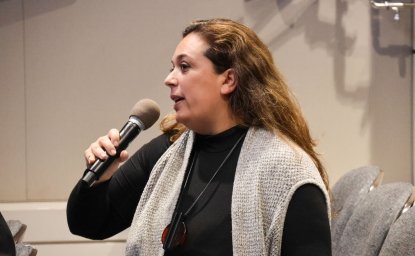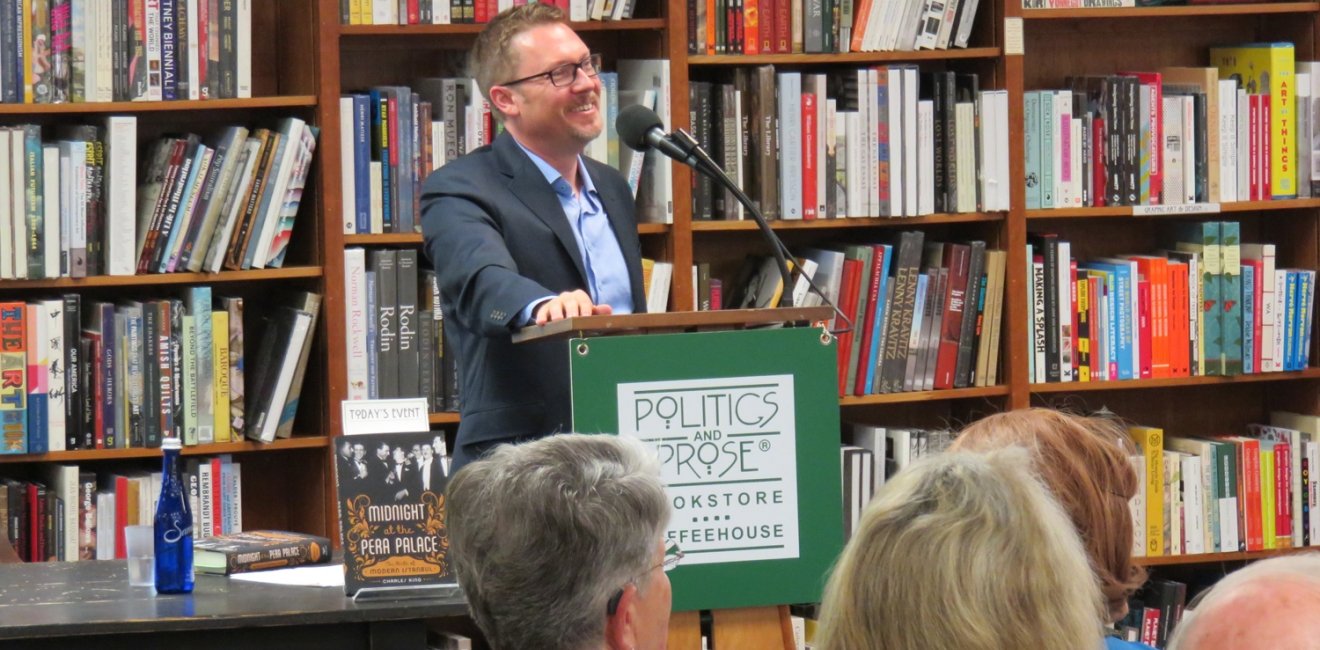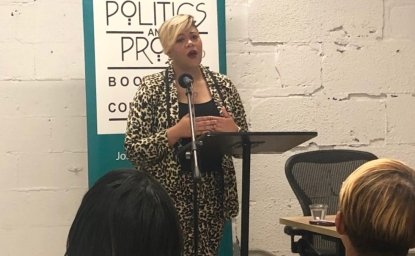
A blog of the Wilson Center
A Wilson Center fellow with the Global Europe Program from September 2012 to May 2013, Dr. Charles King now serves as Professor of International Affairs and Government at Georgetown University. Author or editor of seven books including Midnight at the Pera Palace: The Birth of Modern Istanbul (W.W. Norton, 2014), Odessa: Genius and Death in a City of Dreams (W.W. Norton, 2011), and The Ghost of Freedom: A History of the Caucasus (Oxford University Press, 2008), King’s research focusses on nationalism, ethnic politics, transitions from authoritarianism, urban history, and the relationship between history and the social sciences. A frequent speaker and commentator on global affairs, King has published essays in the New York Times, Washington Post, Los Angeles Times, and other major newspapers; in magazines such as Foreign Affairs, Foreign Policy, and The New Republic; and in web-based media such as Slate, The Daily Beast, and the Christian Science Monitor. His broadcast appearances have included National Public Radio's "Morning Edition," MSNBC's "The Rachel Maddow Show," CNN, the BBC, and other venues. King has been a Fulbright scholar and a Public Scholar of the National Endowment for the Humanities, and his research has been supported by the Social Science Research Council, the International Research and Exchanges Board, and the Wilson Center’s own Kennan Institute.
Q&A
Q: What issues or topics are you working on currently?
A: I've just finished work on a new book project entitled "The Humanity Lab: A Story of Race, Culture, and the Struggle for an American Idea." The book follows the lives of a small group of embattled scholars, in the 1920s and 1930s, who pioneered a new way of thinking about some of the dividing lines that have bedeviled American society from the country's beginnings. They included such luminaries as Margaret Mead, the renowned anthropologist, and Ruth Benedict, whose work helped to shape America's engagement with postwar Japan, along with Zora Neale Hurston, the Harlem Renaissance novelist who is less well known for what she was earlier in her career: a really stellar social scientist. The book is also a kind of warning about the resilience of our darkest ideologies--racism, sexism, and others--and the ways in which they continue to be impediments to realizing some of the country's ideals.
Q: What else have you done since you left the Wilson Center?
A: I continue to teach at Georgetown University. For the past three years, I have been chair of the Department of Government, the largest arts and sciences department at the university, overseeing the sizable undergraduate program, three master's programs, and a PhD program.
Q: Have you found your association with the Wilson Center to be beneficial to your work?
A: The Wilson Center provided a welcoming, resource-rich, and supportive environment to complete my last book, "Midnight at the Pera Palace: The Birth of Modern Istanbul," which became a New York Times Editors' Choice selection and has been translated into about a dozen languages. I'm really grateful to the Wilson Center, its staff, and its librarians for their help in this project; the association with the Center really made it happen.
Q: What are your best memories at the Wilson Center?
A: It has to be the collegial atmosphere and the eagerness of staff to assist scholars in completing their work. There are so few places that try to combine scholarship and public impact in exactly the way the Wilson Center does. It's one of the treasures of Washington, and of the country at large, and I hope it never loses that commitment to doing translational work between the purely scholarly and the publicly engaged.
Q: What’s the best example you can provide that highlights the impact of your work?
A: I like to think that I provide context, a deep breath, some historical perspective, maybe some inconvenient details--all of which complicate the narratives that circulate via social media or quick-take journalism. I was very active during my time at the Wilson Center in trying to do this at the time of the Boston Marathon bombing, which took place while I was a Fellow. I've continued to try to do that in other topic areas, from contemporary Turkey to Russia, and now increasingly by responding to how Americans continue to misinterpret their own national past on matters ranging from race to immigration.
Q: Do you have any advice for a student interested in your field?
A: Choose classes not by their titles but by their professors, since chances are you're going to be inspired by great teaching regardless of the topic area--and you'll probably discover some field of knowledge that is utterly new and completely captivating to you. Have at least one non-required book in your backpack at all times. Try on radically new ways of seeing the world and walk around with them for a while. Learn languages, even if you learn them badly. Find professors whose writing you admire--which means you actually have to read the things your professors write; they'll love you for it--and then get them to tell you their secrets.
Q: Do you have any upcoming projects or other future plans you can tell us about?
A: The next year is going to be taken up with edits on "The Humanity Lab" and preparing for that book's publication, likely in 2019 sometime. Then I'll have to start thinking about what's next.
Author
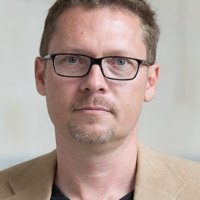

Global Europe Program
The Global Europe Program is focused on Europe’s capabilities, and how it engages on critical global issues. We investigate European approaches to critical global issues. We examine Europe’s relations with Russia and Eurasia, China and the Indo-Pacific, the Middle East and Africa. Our initiatives include “Ukraine in Europe”—an examination of what it will take to make Ukraine’s European future a reality. But we also examine the role of NATO, the European Union and the OSCE, Europe’s energy security, transatlantic trade disputes, and challenges to democracy. The Global Europe Program’s staff, scholars-in-residence, and Global Fellows participate in seminars, policy study groups, and international conferences to provide analytical recommendations to policy makers and the media. Read more

Explore More in Scholar & Alumni Spotlight
Browse Scholar & Alumni Spotlight
Dr. Guadalupe Correa-Cabrera: Crossing Borders in Research and Policy
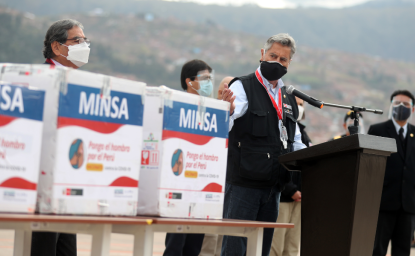
Former Peruvian President Francisco Sagasti: Academic Turned Politician
